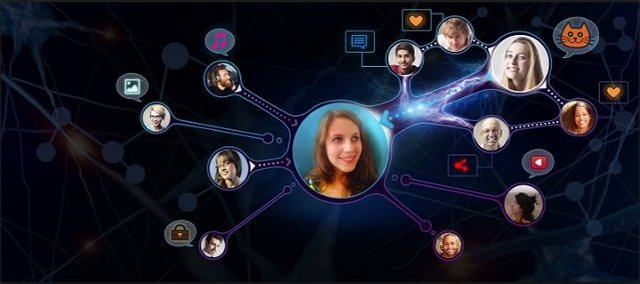Recommended Article: Synereo’s ‘Blockchain 2.0’: Foundation For A Better P2P Economy?
See Summary of the Recommended Article below -
Read the full article HERE

Summary
Synereo, a blockchain-based, decentralised social network and a platform allowing web applications to exist without centralised servers, has released information about how its technology improves over the bitcoin and Ethereum blockchains. The Synereo “Technology Stack” provides, for the first time, scalable decentralised computation abilities on an industrial scale. Shortly, it will be possible to deploy fully operational applications on the system, without the applications having to be stored in a centralised location.
The RChain, often referred to as “Blockchain 2.0,” improves on standard blockchain technology, which supports bitcoin and Ethereum.
In contrast to those projects, Synereo’s “RChain” is a concurrent and “shared” blockchain. “Sharded” refers to the subdivision of the blockchain into composable parts, which interlock to a unified whole, but do not need to be computed simultaneously, as is the case with the bitcoin blockchain. Concurrent means that this subdivision allows different processes to run in tandem without interfering with each other. Such a system is truly scalable since its growth provides ever more resources rather than driving it towards its overclocking.
Synereo’s Rchain’s consensus protocol is based on Ethereum’s Proof of Stake Casper design, where consensus is as cheap as possible for everyone, except for adversaries conducting an attack.
Lucius Greg Meredith, Synereo’s CTO, developed a unique protocol to distribute information among Synereo nodes and then retrieve it on demand. This protocol is called “SpecialK.”
SpecialK represents an evolution of DHT-like, distributed key-value databases.
It further provides a monadic domain-specific language, giving programmers with a familiar, unified API where they can access data distributed across the network. Data is being circulated with both redundancy and sensitivity in mind, ensuring it is available where needed, when it’s needed, and concealed when it’s not.
Rchain’s native programming language, Rholang (Reflective, Higher-Order process Language) is comparable to Ethereum’s Solidity.
In contrast to Solidity, however, Rholang is a reflective programming language, based on process calculus, allowing for the parallel execution of processes and the composition of higher-ordered smart contracts by lower ones.
The future promises a real P2P economy, enabling large-scale cooperation between individuals without them being taxed by platform giants. Synereo’s RChain and the full stack is expected to be fully operational in the fourth quarter of 2017.